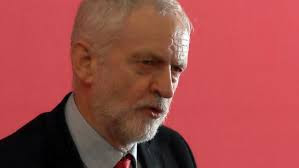If we did, there’d be an invaluable lesson some 75 years old to be learned from Denmark. A lesson that badly needs to be learned again today. A lesson that would save a lot of people, particularly Muslims, a lot of pain, and a lot of other people, especially non-Muslims, a lot of shame.
Denmark was occupied by Nazi German forces in 1940. But the occupation began to fall apart long before the Second World War ended. As Hannah Arendt explains in Eichmann in Berlin, ‘when the Germans approached [the Danes] rather cautiously about introducing the yellow badge [to be worn by all Jews, as in other Nazi controlled areas], they were simply told that the King would be the first to wear it…’.
The Danes hadn’t been especially kind to foreign Jews, many of them German, who sought refuge in their country. As elsewhere, the refugees weren’t granted work permits; they were tolerated but not necessarily helped. But when Nazi Germany began to ask for the German Jews to be deported to the Reich, the response was extraordinary. The Nazis had declared those Jews stateless, so ‘the Danes… explained to the German officials that because the stateless refugees were no longer German citizens, the Germans could not claim them without Danish assent. This was one of the few cases in which statelessness turned out to be an asset, although it was of course not the statelessness per se that saved the Jews but, on the contrary, the fact that the Danish government had decided to protect them’.
What was particularly strange was what happened in 1943. This was when the Nazis decided that the time had come to clear Denmark entirely of Jews, as they were attempting to clear country after county in their power. ‘What [Himmler, chief of the SS] did not reckon with was that – quite apart from Danish resistance – the German officials who had been living in the country for years were no longer the same’.
It was as though the spirit of resistance had rubbed off on the occupiers. ‘Not only did General von Hannecken, the military commander, refuse to put troops at the disposal of the Reich plenipotentiary, Dr Werner Best; the special S.S. units (Einsatzkommandos) employed in Denmark very frequently objected to “the measures they were ordered to carry out by the central agencies” – according to Best’s testimony at Nuremberg [the war crime trials after the fighting ended].’
Even Best became deeply unreliable, from the Nazi point of view. When police arrived from Germany to start rounding up the Jews for deportation, ‘Best told them that they were not permitted to break into apartments, because the Danish police might then interfere… Hence they could seize only those Jews who voluntarily opened their doors. They found exactly 477 people, out of a total of more than 7,800, at home and willing to let them in.”
Even these Jews were transferred to Theresienstadt, the concentration camp for privileged Jews where they received better treatment than most because the Danish government kept making a ‘fuss’ about them. Many of these Jews were elderly, so the fact that 48 of them died is probably not a particularly high proportion.
The fatal date for deportation was 1 October, but a few days earlier, the leaders of the Jewish community were told of the whole plan, probably on Best’s own orders. The community went into hiding, ‘which was very easy in Denmark, because… “all sections of the Danish people, from the King down to simple citizens,” stood ready to receive them.’
 |
| Danish Jews being taken to safety in Sweden |
About half the Jewish population got safely to Sweden. The other half remained in hiding in Denmark and survived the war. Some 99% of Danish Jews made it.
What the Danes showed was an extraordinary – literally, it was strikingly out of the ordinary – willingness to resist injustice. By doing so, peacefully and without violence, they seem to have undermined the will even of some of their oppressors. What might have happened if Hitler hadn’t had his forces tied up fighting his losing war is hard to say: he might well have crushed the resistance. Even so, what matters is that the Danish government and people worked together to resist a terrible evil and, helped by circumstances, they succeeded.
Others outside Denmark also resisted. Bulgaria, for example, or many in France and Italy. But elsewhere the Nazis often found willing or even enthusiastic accomplices.
I wish the same spirit of resistance was flourishing in Britain today, where Islamophobia seems to be still growing, and parties even feel the need to compromise with it, for electoral reasons. I wish we could find it in France where harsh Islamophobic laws have been adopted. I wish we could find it in some of Europe’s new ‘democracies’ in the centre and east of the continent, where brutally anti-immigrant forces seem to be in control, notably in Hungary. I wish it was burning as strongly even in Denmark and Sweden were xenophobic parties wield far more influence than is healthy.
Whenever we hear someone denouncing immigrants, such as refugees from Libya or Syria or other Middle Eastern and African countries, let’s remember the case of Denmark in World War 2. Let’s remember how shameful the collaborators in many countries seem today. Let’s recall how admirable the resisting Danes.
Then maybe we’ll find the will to resist the xenophobes of our times and stand, as the Danes then did, shoulder to shoulder with the vulnerable and the persecuted.
Still, if we did that, we’d be in danger of learning a lesson from history.














